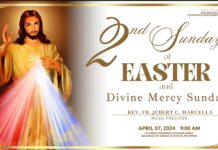Significance of the Chrism Mass
- Blessing of Holy Oils: This is the central function of the Chrism Mass. The bishop blesses three specific oils used in administering sacraments throughout the year:
- Oil of Catechumens: Used during the baptism ceremony to prepare those entering the faith.
- Oil of the Sick: Anointed on the sick during the Anointing of the Sick sacrament.
- Holy Chrism: A blend of olive oil and fragrant balsam, used in Baptism, Confirmation, and ordination of priests and bishops. The Chrism is consecrated, which is a stronger blessing than a simple blessing.
- Unity of the Clergy: The Chrism Mass brings together the bishop and priests of the diocese. This gathering signifies their unity and collaboration in serving the Church.
- Renewal of Commitments: During the Chrism Mass, both the assembled laity and the clergy renew their baptismal promises. Priests also recommit themselves to their priestly vows made during ordination. This serves as a powerful reminder of their roles and dedication within the Church.
- Symbolism of Anointing: The blessing of the oils is a reminder that God’s grace is poured out through the sacraments. The Chrism Mass emphasizes the importance of these sacred oils as tangible signs of the Holy Spirit’s presence working through the Church.
In essence, the Chrism Mass is a celebration of the sacramental life of the Church. It highlights the importance of the sacraments, the unity of the clergy, and the ongoing commitment of all members to live out their baptismal call.











